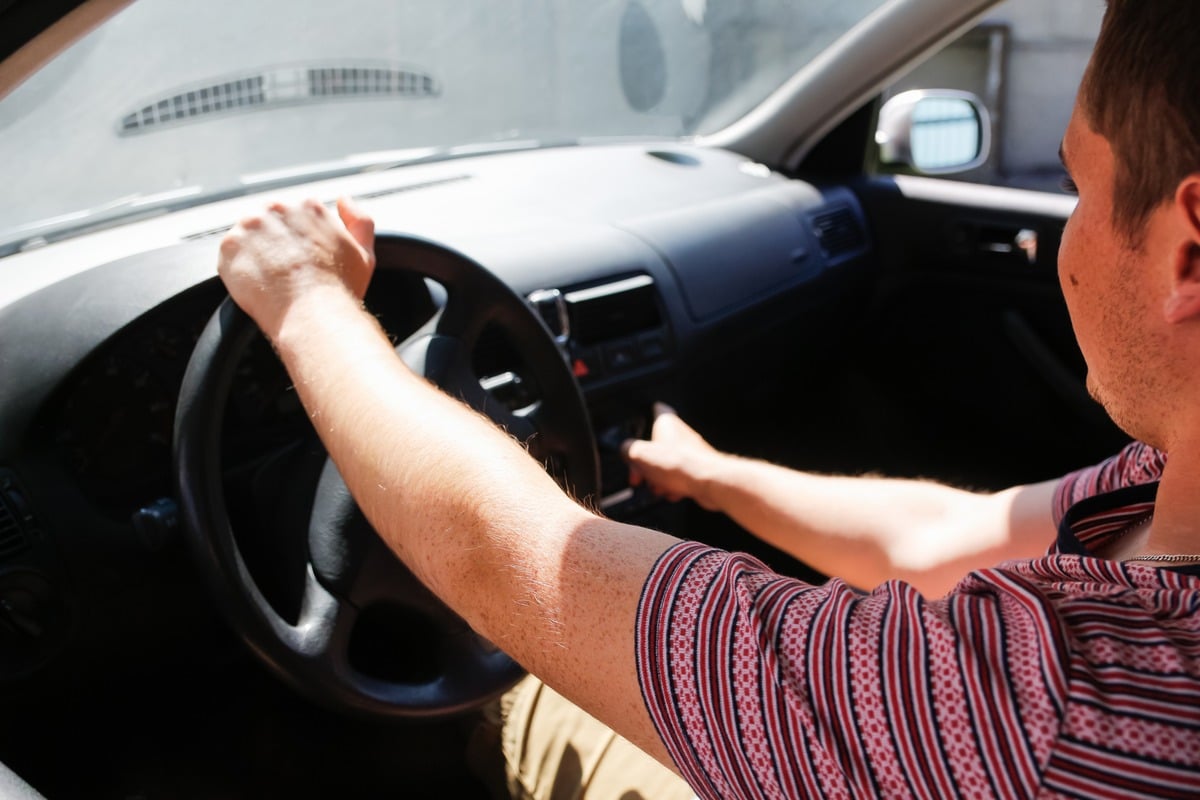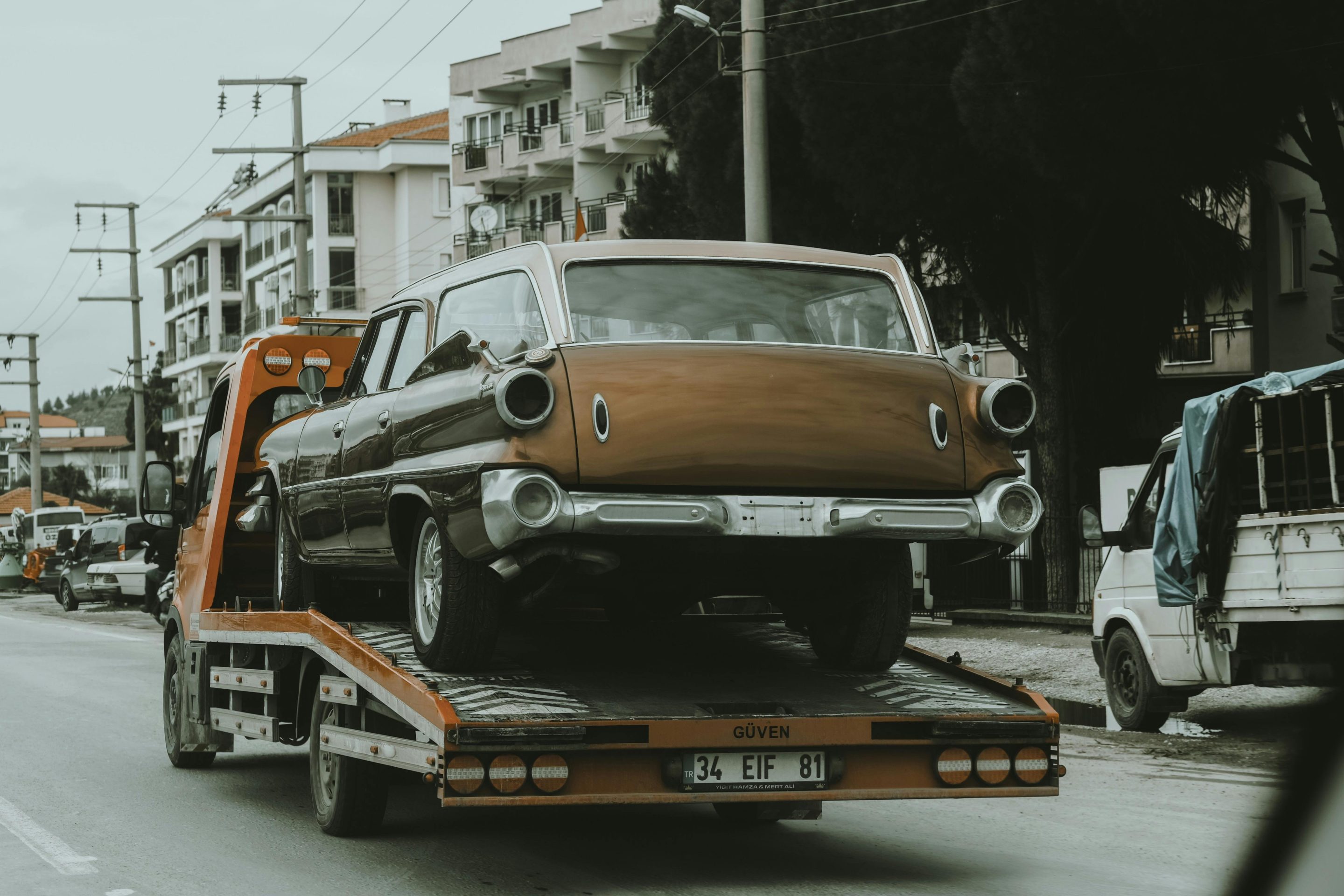Burned Alive: El Paso Crash Sparks Wrongful Death Lawsuit Against Towing Company
On May 8, 2025, an ordinary roadside tow in El Paso turned into a horrific multi-vehicle collision—ending in the painful, preventable death of 65-year-old trucker Aldo Jenkins.
Now, his family is seeking justice.
Table of Contents
1. The Fatal Chain of Events
2. Who’s Being Held Accountable?
3. The Real Cost of Cutting Corners
4. What Is a Wrongful Death Lawsuit?
5. Common Causes of Tow Truck Accidents
6. What Towing Companies Should Be Doing
7. How Trucking and Towing Companies Try to Dodge Responsibility
8. What You Should Do After a Commercial Vehicle Accident
9. Fight Back With a Trusted Legal Team
The Fatal Chain of Events
At the busy intersection of Loop 375 and N. Desert Boulevard, a 1994 Kenworth heavy wrecker was towing Jenkins’ disabled semi-truck when it failed to stop in time. The driver slammed into traffic, setting off a massive 11-vehicle crash.
The wrecker erupted into flames.
Trapped inside the cab, Jenkins had no way to escape. He was burned alive, while seven others sustained injuries ranging from moderate to severe.
Who’s Being Held Accountable?
1. The Driver Behind the Wheel

The complaint claims the driver was dangerously distracted—possibly using a cell phone or another device while operating a heavy-duty tow truck. He was reportedly speeding, following too closely, and failed to brake in time at a congested intersection.
This kind of behavior isn’t just careless—it’s deadly. In heavy traffic, every second counts. And when a driver takes their eyes off the road, even briefly, the consequences can be irreversible.
2. Sheffield Towing Service
But the lawsuit doesn’t stop with the driver. The company he worked for—Sheffield Towing Service—is also named in the suit. Why? Because it’s not just about the actions of one person. It’s about the systems (or lack of them) that allowed it to happen.
According to the lawsuit, Sheffield Towing is accused of gross negligence for:
-
- Hiring or keeping drivers who were unqualified or had questionable driving records
- Failing to enforce proper safety protocols and training
- Ignoring repeated risks related to distracted or reckless driving
In short, the suit argues that the company didn’t just miss a few red flags—it actively looked the other way, putting profit and convenience over public safety.
The Real Cost of Cutting Corners
Tow trucks and heavy wreckers aren’t ordinary vehicles—they’re massive machines that can weigh 20,000 pounds or more. When they’re operated carelessly, they become a serious threat on the road. One wrong move. One distracted moment. That’s all it takes to cause irreversible harm.
The Jenkins case serves as a grim reminder: when safety slips through the cracks, everyday people are the ones who suffer. And in this case, it cost a man his life.
But the Jenkins incident isn’t just a tragic accident. It’s a story about what happens when a company chooses shortcuts over safety. Behind the scenes, there were troubling signs:
- Drivers are put behind the wheel without proper training
- Little to no oversight when drivers showed reckless behavior
- Pressure to prioritize speed and response times over careful operation
In the race to respond quickly, Sheffield Towing may have ignored the basics of responsibility. And now, a family is left picking up the pieces.
This case forces a larger question:
What Is a Wrongful Death Lawsuit?
A wrongful death lawsuit gives families the legal right to pursue justice when someone they love dies because of another person’s careless or reckless actions. It’s not just about compensation—it’s about accountability.
In the case of the Jenkins family, they’re not just grieving. They’re fighting back.
Their lawsuit seeks damages for:
- Funeral and burial expenses – The immediate and often overwhelming financial burden after a sudden loss
- Loss of companionship – The profound emotional impact of losing a parent, spouse, or loved one
- Mental and emotional anguish – The lasting trauma caused by such a tragic and avoidable death
- Punitive damages – A way to hold the defendants fully accountable and send a message that gross negligence won’t be tolerated
For families like the Jenkinses, a wrongful death claim isn’t just a legal process—it’s a step toward closure and justice.
Common Causes of Tow Truck Accidents

- Driver fatigue – Long hours and irregular shifts can leave drivers exhausted and slow to react.
- Distracted driving – Phones, radios, or even GPS can pull attention away from the road at the worst possible moment.
- Poor vehicle maintenance – Worn-out brakes or balding tires can make it impossible to stop or control a massive wrecker.
- Speeding—Some companies push drivers to meet unrealistic deadlines, encouraging dangerous behavior behind the wheel.
- Improperly loaded vehicles – If a car isn’t properly secured or the truck is overloaded, it can shift, detach, or throw the tow truck off balance.
When safety protocols are ignored, these machines become threats—not tools. And when accidents happen, victims deserve answers.
What Towing Companies Should Be Doing—But Often Don’t
Deadly crashes like the one that killed Aldo Jenkins aren’t just tragic—they’re often preventable. When companies cut corners on safety, lives are at risk. Here’s what responsible towing companies should be doing to keep roads safe, but too many simply don’t:
- Ongoing Driver Training & Routine Drug Testing
Driving a heavy wrecker isn’t like driving a car. It takes serious training and focus. Reputable companies make sure their drivers are constantly trained—and regularly tested for drugs and alcohol. When that’s skipped, the danger multiplies. - Live GPS Tracking to Catch Risky Driving
GPS isn’t just for directions—it gives real-time data on speed, sudden braking, and erratic behavior. Companies should use this to spot risky drivers and fix the problem before someone gets hurt. - Brake and Load Checks—Every Time
A fully loaded tow truck puts massive pressure on brakes and suspension systems. Skipping safety checks before heading out? That’s asking for disaster. - No Phones, No Distractions—Period
Texting or scrolling behind the wheel of a 30,000-pound machine? It’s reckless and deadly. Towing companies should ban all device use while driving, no excuses and no grey areas.
How Trucking and Towing Companies Try to Dodge Responsibility
After a serious tow truck accident, you might expect the company involved to step up and do the right thing. But in reality? That’s rarely the case.
Trucking and towing companies are backed by aggressive insurers and legal teams whose primary goal is to protect the business—not the victim. Their playbook is designed to reduce liability, limit payouts, and make the problem disappear as quickly (and cheaply) as possible.
Here’s how they often try to shift the blame:
1. Blaming the Victim
They might argue you were driving too fast, distracted, or “came out of nowhere.” Even if their driver was clearly at fault, expect attempts to twist the facts and cast doubt on your version of events.
2. Calling It an “Unavoidable” Mechanical Failure
Faulty brakes? Tire blowout? Sudden engine problem? These companies may chalk it up to bad luck—when in reality, it could be the result of poor maintenance or neglected repairs.
3. Downplaying Injuries
Don’t be surprised if they claim your injuries are “minor” or pre-existing. Some will go as far as suggesting you’re exaggerating or seeking a payout. This is a tactic to minimize what they owe you—or to deny the claim altogether.
4. Pushing for a Quick (and Unfair) Settlement
In the days or weeks after the crash, you may receive phone calls, emails, or even home visits from insurance reps offering a settlement. The catch? You’ll have to sign away your right to future claims—before you even know the full cost of your medical care or recovery.
5. Using Confusing or Misleading Language
Some companies use complex paperwork and vague legal terms to confuse victims into giving up their rights. Without a lawyer, it’s easy to feel pressured—or make a mistake you can’t undo.
Protect Yourself Before You Talk to Them
If you’ve been involved in a tow truck or commercial vehicle accident, don’t go it alone. Companies have teams working to reduce their responsibility from the moment the crash happens.
Before you speak to any insurance adjuster or company representative, talk to a personal injury attorney who knows how to handle these tactics. They’ll help you protect your rights, build a strong case, and fight for the compensation you truly deserve.
What You Should Do After a Commercial Vehicle Accident
A crash involving a tow truck or commercial vehicle can be overwhelming—and the steps you take right after can make all the difference in your recovery and your legal case. Here’s what you need to do:
1. Get Checked by a Doctor—Even If You Feel “Fine”

Some injuries, like concussions, internal bleeding, or soft tissue damage, don’t show symptoms right away. Don’t wait. A medical exam creates a record of your injuries and protects your health.
2. Gather and Save Evidence
Take photos of the scene, your injuries, and the vehicles involved. If there are witnesses, get their contact info. Hold on to any documents—like police reports, medical records, or tow slips. This evidence can be robust later.
3. Avoid Signing Anything Too Soon
Insurance companies may try to settle quickly—and for far less than you deserve. Don’t let urgency or stress push you into accepting a low offer. You may be giving up your right to future compensation.
4. Talk to a Personal Injury Lawyer Early
Before you talk to adjusters or sign paperwork, speak with an attorney who knows how to handle commercial vehicle accidents. A good lawyer will guide you through every step and fight for the compensation you’re entitled to.
Fight Back With a Trusted Legal Team
At Roxell Richards Law Firm, we know that no lawsuit can bring a loved one back—but it can deliver justice, financial relief, and accountability. We represent families in wrongful death and catastrophic injury cases across Texas.
Let us help you hold negligent companies responsible and protect other families from future harm.
👉 Contact us today for a free, confidential case evaluation.
📞 Visit roxellrichards.com to get started.
Frequently Asked Questions
What qualifies as a commercial vehicle accident?
Who can be held responsible in a commercial vehicle crash?
What if the truck driver was working at the time of the accident?
Your content goes here. Edit or remove this text inline or in the module Content settings. You can also style every aspect of this content in the module Design settings and even apply custom CSS to this text in the module Advanced settings.

